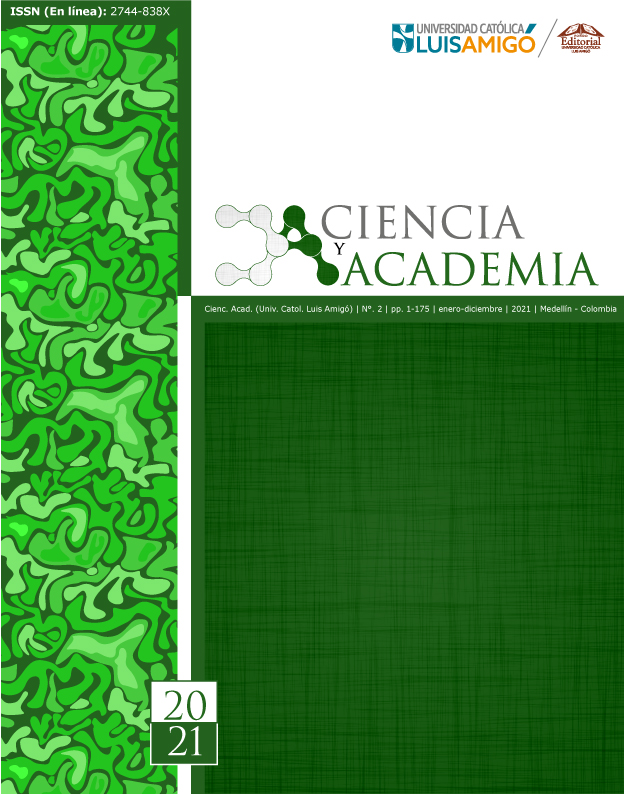Inclusive environments
DOI:
https://doi.org/10.21501/2744838X.4264Keywords:
Classroom interactions, Inclusive education, Inclusive environments, Community, Networking, Subject, School managementAbstract
A situated reflection on the ecological, educational, environmental, legal and management conditions is presented, in order to address the different challenges
that inclusive environments admit for an education marked by the principles of equality and benevolence in the school context. Throughout the reflective analysis, the need to the need to build collective efforts that create work networks,
by virtue of the networks, due to different reasons exposed in the whole rhetorical line of the text. rhetorical line of the text. The benefits of networking are presented at different levels, starting from the micro level, from the micro level to the micro level. different levels, from the micro (classroom interactions) to the macro (areas of school management). meso (areas of school management).
Downloads
References
Bardisa Ruiz, T. (1997). Teoría y práctica de la micropolítica en las organizaciones escolares. Revista Iberoamericana de Educación, 15, 13-52. https://doi.org/10.35362/rie1501120
Cabrera, J. (2009, 1 de noviembre). Redarquía: el nuevo orden emergente en la Era de la Colaboración. The Online Acceleration Company. https://blog.cabreramc.com/2009/11/01/redarquia-el-nuevo-orden-emergente-en-la-era-de-lacolaboracion/
Capra, F. (1996). La trama de la vida. Anagrama.
Congreso de la República. (2013, 27 de febrero). Ley 1618 de 2013. Por medio de la cual se establecen las disposiciones para garantizar el pleno ejercicio de los derechos de las personas con discapacidad. Diario Oficial n.° 48.717. https://discapacidadcolombia.com/phocadownloadpap/LEGISLACION/LEY%20ESTATUTARIA%201618%20DE%202013.pdf
Cortés, L. (2009). La escuela como una organización sistémica. Horizontes Pedagógicos, 11(1), 105-114.
Duarte Duarte, J. (2003). Ambientes de aprendizaje: una aproximación conceptual. Estudios Pedagógicos (Valdivia), (29), 97-113. https://dx.doi.org/10.4067/S0718-07052003000100007
Ferreiro, R. (2004). Más allá de la teoría: el aprendizaje cooperativo: el constructivismo social. El modelo educativo para la Generación N. https://1library.co/document/rz3379ez-el-constructivismo-social-pdf.html
Hernández Ríos, M. I. (2015). El concepto de discapacidad: de la enfermedad al enfoque de derechos. Revista CES Derecho, 6(2), 46-59.
Ministerio de Educación Nacional de Colombia. (2007). Educación para todos. Atablero, (43). https://www.mineducacion.gov.co/1621/article-141881.html
Miro, J. (2016). Grupos Cooperativos: la voz de la diversidad. Blog Juandon. Innovación y conocimiento. https://juandomingofarnos.wordpress.com/2016/07/01/gruposcooperativos-la-voz-de-la-diversidad/
Roldán O, Alvarado S, Hincapie C., Mejías M. (1999). Educar el desafío de hoy. Construyendo posibilidades y alternativas. Colección Mesa Redonda; Cooperativa Editorial Magisterio.
Rué, J. (1994). El trabajo cooperativo. En P. Dader & J. Gairín (eds.), Guía para la organización y funcionamiento de los centros educativos (pp. 244-253). Praxis.
Skliar, C. (2002). Alteridades y Pedagogías: O...¿ Y si el otro no estuviera ahí? Educação & Sociedade, 23(79), 85-123. https://doi.org/10.1590/S0101-73302002000300007
Published
How to Cite
Issue
Section
License
Copyright (c) 2022 Ciencia y Academia

This work is licensed under a Creative Commons Attribution-NoDerivatives 4.0 International License.
La revista y los textos individuales que en esta se divulgan están protegidos por las leyes de copyright y por los términos y condiciones de la Licencia Creative Commons Atribución-No Comercial- 4.0 Internacional. Permisos que vayan más allá de lo cubierto por esta licencia pueden encontrarse en http://www.funlam.edu.co/modules/fondoeditorial/






